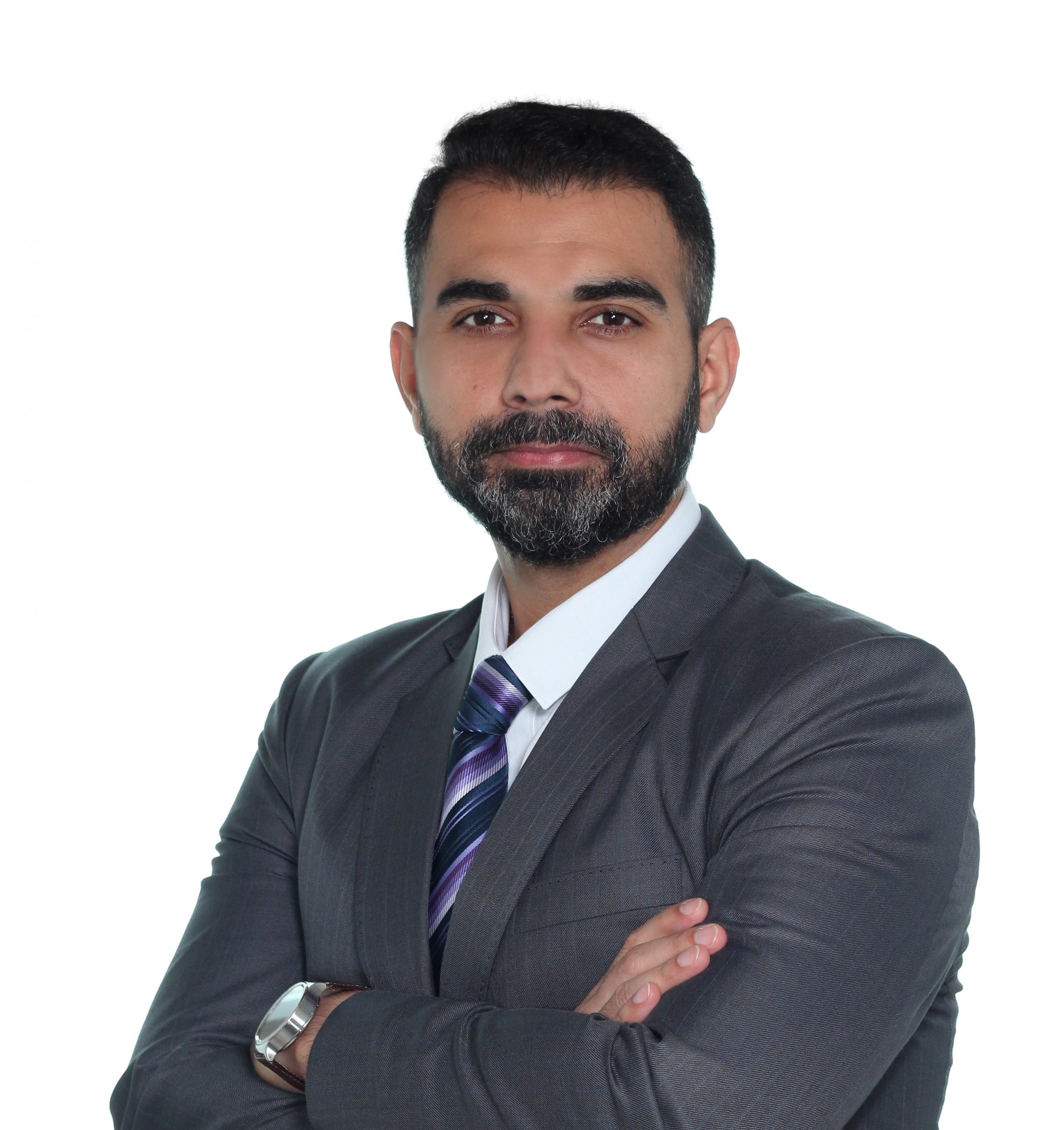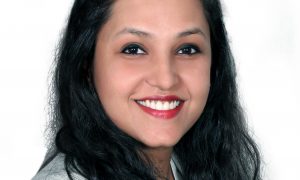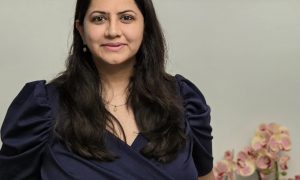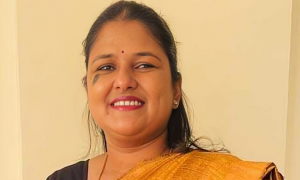This interview has been published by Namrata Singh and The SuperLawyer Team

Varun, it’s a pleasure to have you for this interview. Could you please introduce yourself and share a bit about your journey and your current role as the Global Head of Legal and Business Solutions at Lighthouse Canton?
Thank you for inviting me for this interview. I began my legal career back in 2007-08. Predominantly, I have always been a law firm lawyer before joining Lighthouse Canton as their Global Head of Legal and Business Solutions. I would bifurcate my career into two parts wherein the first part was spent at Dua Associates where I began as an Associate and continued for almost a decade. Thereafter, I was a Partner at PSA Legal Counsellors, and Desai & Diwanji, respectively. At Lighthouse Canton, I oversee the legal function, which is self-explanatory. The other function that I oversee is business solutions, which is essentially at the heart of the wealth management business of Lighthouse Canton, which has 2 main businesses wealth and asset management. While legal has a broad range and would cover arrangements on asset management, HR and myriad other areas across the organisation, business solutions cater to HNIs and UHNIs who are on the lookout for niche tax/other structuring solutions, setting up an offshore family office, flipping their current structure, succession planning solutions and so on.
Varun, you pursued your Master of Laws (LLM) at NYU in New York and now hold a prominent position in Singapore. How did your education in the U.S. influence your career path, and what prompted your move to Singapore?
Education in the US is an incredibly enlightening experience. Not only is the method of instruction different from that in India or England, but the culture and approach towards education per se are distinct. The focus is on discussion, rationale, understanding and analysis, and your age or current vocation does not matter. There is no limitation to acquiring or enhancing one’s skill set. Ideally, I would have liked to work in the US for some time at least. But as they say, man proposes and God disposes. Shortly after I began my LLM program the world was hit by something called the subprime mortgage crisis, a global recessionary situation wherein the US was the epicentre of this economic earthquake, and I was one of those right in the middle of it. That apart, the US, especially New York, teaches you a lot about life in general. One of those things is self-reliance or sufficiency. If you are open to the idea, you could discover yourself in such a situation. Let’s face it. The LLM program at a premium varsity abroad is expensive for the average person. So, one would like to procure a work opportunity in the US to obtain exposure and recover the hefty tuition unless one manages a scholarship. The latter was on my agenda, but that discussion is for another day, I guess. Law firms in the US are extremely professional. Thus, even rejections to my request for placement were kindly worded and came to me in sealed envelopes. Other than the fact that you are away from home/family, an existing economic crisis only has a compounding effect on one’s self-esteem. However, sometimes, such a situation only makes one stronger, and it’s not in my DNA to give up easily. Thus, I took everything with a pinch of salt and made my way back to India. To clarify, Singapore was not on my agenda then.
Can you share insights into adapting to the legal and business environment in Asia after your experiences in the U.S.?
Honestly, the first time I thought about Singapore as a place where I could work and live was when I was transiting from Singapore for a holiday in 2015. The layover was longer than usual for some reason, so we opted for the free city tour that Singapore Airlines does from the Changi airport. It is an interesting tour for someone who has never been to Singapore. I had already been here twice and thought that I was aware of the city, but things were to change. The island country had changed a lot from the days when Orchard Road was the city centre and the Merlion stood tall at Sentosa. Now, there was a thriving central business district at Raffles Place/Collyer Quay and the city had transformed itself in more ways than one. So, yes, the thought did cross my mind, but I was too preoccupied with what I was already doing so I did not follow through. It was only in 2021-22, when the opportunity with Lighthouse Canton came along that I put my mind to it and began a detailed investigation into the possibility of moving to Singapore. Singapore and the US are very different from each other. One of the major factors is the sheer size, demographics, and population of the respective countries. There is no second-guessing about Singapore’s position as the financial hub of Southeast Asia. Further, the law and order promulgation, enforcement, political stability, and swift and efficient judiciary make it a force to reckon with not only in Asia but also in the world. As Singapore is a common law country, the basic structure of all laws is like other common law countries with subtle nuances to the same. The banking and finance industry is at the centre stage and almost all global corporations and conglomerates have a significant presence here. Honestly, the pressure to deliver never changes if you take your work seriously and have the desire to grow personally and professionally. So, while there could be a difference in approach, there is no compromise on quality.
You’ve had a diverse and extensive career, ranging from private practice at law firms to your current global leadership role. How has your journey, including experiences at Desai & Diwanji, Priti Suri & Associates, and Dua Associates, shaped your approach to legal and business solutions?
It has been a rather interesting journey wherein I have worked with two large firms and one boutique law firm. I began my career at Dua Associates, so a large part of my initial learnings came from here. I was fortunate to report to a senior partner with rich experience behind him. While that meant that expectations were always high, I had the opportunity to learn, sometimes by simply observing my senior and some other times by asking the right questions of him. One needs to understand that this process necessarily involves unbiased introspection as otherwise, you will not be able to upskill, improve yourself and identify the chinks in your armour. Further, another important thing is to know what to learn and imbibe and what not to. Of course, that comes with experience, age, and wisdom. By the time I was at PSA, I was relatively senior and joined them as a partner. Also, as it is a boutique law firm, the manner of operations was very different from that at Dua Associates. However, as we were a lean team, everyone put that extra effort to make things happen and sometimes the energy you create in such situations is contagious to others too. It was here that I unlearned some of the things that I had learnt as I identified and learnt some things that were better and contemporary than what I was accustomed to previously. One needs to appreciate that learning is a continuous process and one must continue to upskill themselves and sync with the present. While I had already begun the process of developing my own book, it was at PSA, that I shifted gears and opened my mind to different possibilities at work. Working at both these wonderful organizations gave me an insight into setups that were traditional and a heady mix of modern and traditional. My last law firm stint before Lighthouse Canton was at D&D, wherein I worked closely with the other partners. So, yes, I was back to a large law firm setup but the manner of functioning of the organization was again distinct from what I had seen in my earlier firms. As I said, the learning never stops. One needs to be a good observer and listener to identify what should be done and also what should not be done in a particular situation. Working at these firms was an enriching experience that shaped my career for the better and made me a better lawyer and a person.
As the Global Head of Legal & Business Solutions, you provide legal support to wealth and asset management businesses. How do you strike a balance between addressing legal intricacies and facilitating business solutions, especially in the wealth management sector?
Interestingly, there is an overlap between the legal and business solutions functions. As mentioned earlier, business solutions involve providing structuring solutions to HNIs/UHNIs, that are tax efficient. Further, a client may have successional planning requirements, which is akin to private client practice at law firms. At Lighthouse Canton, the main difference is that client requirements will typically mostly be at a global level, unlike a law firm wherein you may still engage in domestic mandates and transactions. Also, at law firms, we would typically engage a local counsel when catering to the laws of a foreign jurisdiction. However, with business solutions, there is an expectation to have a preliminary handle on foreign laws too. For instance, one will have to examine legal regimes across jurisdictions to appreciate the tax impact for a particular client. It is pertinent to note that this will change depending on the situation, objectives, and asset locations of a client. Similarly, succession planning solutions will also require us to assess the best option available globally, to address a client’s needs and objectives. Of course, we will engage with local advisers as and when necessary. Thus, it is fair to say that my legal background is critical in enabling me to deliver requisite solutions to our wealth management clientele.
Your role involves executing wealth management pitches for UHNI prospects, including conglomerates and founders. Can you share an interesting experience or a successful pitch that stands out in your memory?
There have been many such experiences that are worth remembering or mentioning. But one needs to understand that a pitch to provide a solution becomes even more interesting where there is interplay between multiple jurisdictions, or where there is some uncertainty in applicable laws. A classical situation that arose some time ago was when we were prospecting a conglomerate for setting up its family office in Singapore. For this purpose, the prospect would make overseas direct investment/ODI from India under the new route for operating companies in India, as introduced by the legislature in August 2022. Interestingly, while on paper, which is also backed by a law firm’s opinion, this route is still available, practically it is not possible due to certain informal communication to authorised dealer banks, who are no longer willing to allow remittance through this new route. Again, this is one amongst several instances that have been extremely intriguing and interesting.
Among the diverse legal projects, you’ve been involved in, is there one that stands out as your favourite? What made it particularly memorable or rewarding?
This is a tough one. I have been party to many and it is hard to place a finger on anyone. However, let me share one of them for our audience. The thing in legal practice is that favourites will change with time. This is so because at a later point in time, hopefully, one will be more experienced/skilled and the same thing that was interesting once may appear mundane now. In a particular instance, I met someone for a business development meeting at their office. We spoke for an hour about various businesses and issues that the group was involved with and areas where I could help the organization. The meeting was with the CEO himself. About a week after our meeting, he sent me a text saying I liked what you told me about securing our group’s IP. Let’s begin with that and see where we go. From there, I ended up assisting the promoter on their private client matters and other issues that the group was facing from time to time. Even today, I am in touch with the gentleman and my highest reward is not the billing that happened but the faith he reposed in me in executing different kinds of tasks for the group. I am ecstatic that I earned a person while earning my livelihood.
Outside of the legal realm, what are your personal interests or hobbies that bring you joy and relaxation? How do you unwind from the complexities of legal leadership?
Now we are talking. I love my music, food, outdoor sports, and spending time with family including my extended family and specifically, my grandparents. I firmly believe that one should not forget that later our grandparents and parents will need us just the way we needed them earlier (and still do). As an aside, I am agnostic to the genre/kind of music or food as the music should sound nice and the food should taste good.
In your career, you’ve worked across various legal domains, from general corporate to private client and intellectual property laws. How has this diversity contributed to your skills, and what advice do you have for legal professionals looking to diversify their practice?
Interestingly, nowadays most law firms have lawyers who operate in silos in terms of practice areas. While that can be a good thing for some practice areas, for some others, it is my view, that it inhibits growth. So, if you have the choice to diversify your practice areas, please do. However, keeping in mind how most law firms will have specific practice area-based departments, it makes sense to bifurcate your skill sets between your core areas and those that move around them. This is crucial from most large law firm’s perspective. Interestingly, in a smaller law firm (and some larger ones too), or in-house role, the more diverse your practice areas are the better it is for you and your growth. While it makes sense to augment your skill set, you must choose your areas wisely both in terms of your core areas and the then prevailing trends and opportunities.
As we conclude, we’d love to hear your perspective on the importance of continuous learning in the legal profession. How do you stay updated on industry developments, and what role does ongoing education play in your career?
As I have already acknowledged, learning is indeed a continuous process. Personally, I keep my eyes and ears open concerning anything that affects my current work profile, or that may otherwise have any relation to the same. As you would appreciate, with the global role, my canvas is quite large. So, I need to keep painting when the opportunity arises while the canvas keeps on expanding itself. We also indulge in external trainings, that can enable us to improve our work and knowledge especially those in relation to Lighthouse Canton’s wealth management business. Thus, ongoing learning and education are critical for my functions.
Get in touch with Varun Kalsi-


























